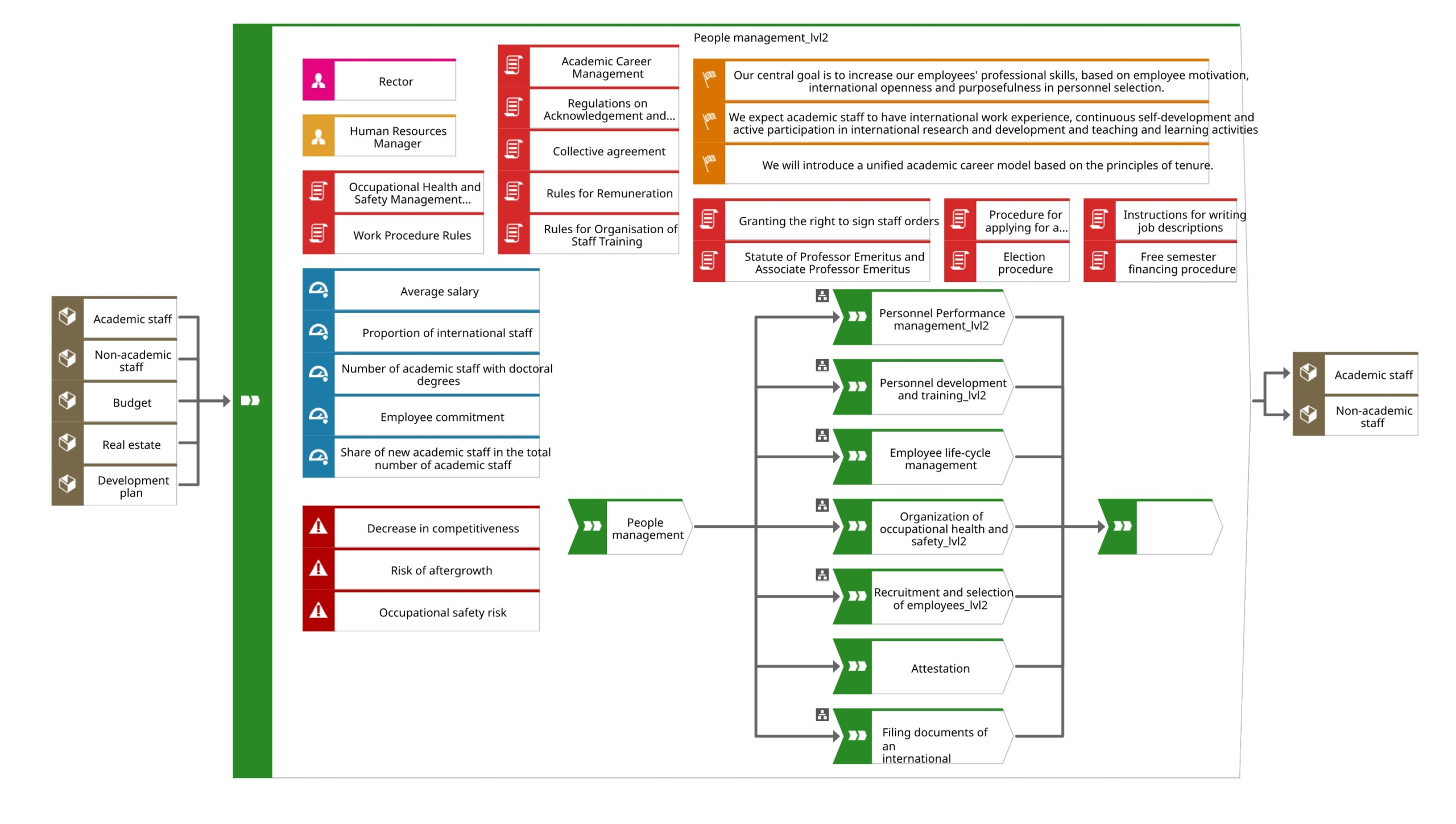Process
Manager
- Tea Trahov Rectorate Director for Administration Office Human Resources Office Offices/Units Director for Administration, Head of Human Resource Office Contacts
Responsible department
Executive departments
Our central goal is to increase our employees’ professional skills, based on employee motivation, international openness and purposefulness in personnel selection. We expect academic staff to have international work experience, continuous self-development and active participation in international research and development and teaching and learning activities. We will introduce a unified academic career model based on the principles of tenure.

Regulations
Performance indicators
If the schedule does not appear, press "Sign in" or "Request access" and refresh the page if necessary.
Rectorate Strategy Office is responsible for the SMART environment:
Tallinn University of Technology
